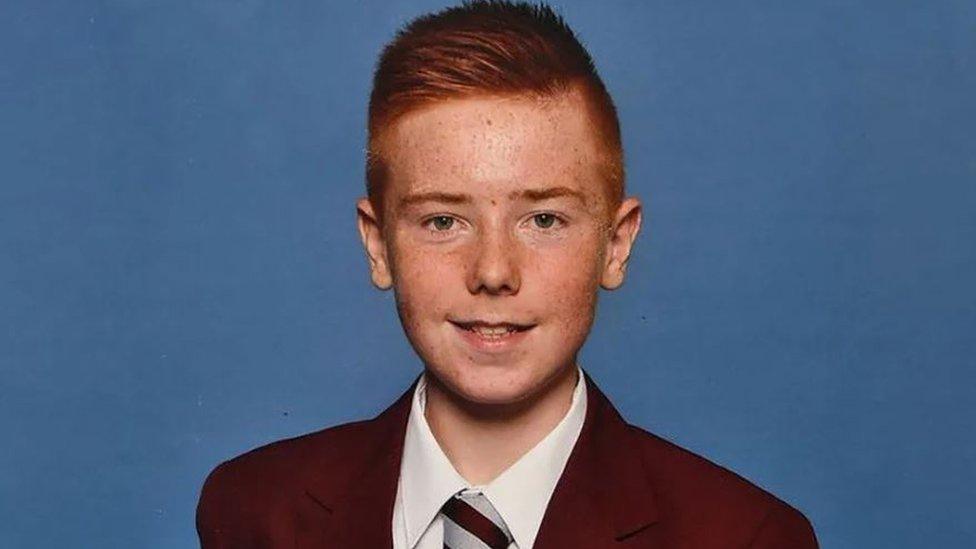'Woefully inadequate' time spent on Polmont suicide risk decision
- Published

William Brown was found dead in his cell in October 2018
A "woefully inadequate" amount of time was devoted to a case conference in Polmont YOI concerning a 16-year-old who later took his own life.
The meeting on whether to stop 30-minute observations for William Brown, also known as William Lindsay, only lasted five minutes.
The teenager died on 7 October 2018, two days after the conference.
Former prison governor Nick Cameron told a Fatal Accident Inquiry that the decision seemed "superficial".
Mr Cameron, who was speaking at the inquiry as an expert witness on prisons, added that a risk assessment of Katie Allan, the other subject of the FAI, "relied extraordinarily heavily on self presentation."
The 21-year-old died on 4 June 2018.
He had been admitted to Polmont on 4 October 2018. The decision to remove him from the Scottish Prison Service's Talk to Me programme was taken the following morning, after the case conference involving William, two prison officers and a mental health nurse.
Paperwork indicated that the meeting lasted five minutes.
'Quite shocked'
Mr Cameron, a former governor of Kilmarnock Prison, said that when he saw the amount of time spent discussing the case he was "quite shocked."
Mr Cameron was asked if he was concerned at that.
He replied that it "appears to be a woefully inadequate time to consider the factors. It appears to give the impression of being something very superficial."
The inquiry had previously heard from staff at Polmont that the meeting had lasted 10 minutes at most.
Asked if 10 minutes would have been long enough to examine all the factors in the case, Mr Cameron replied "it would take a lot longer than 10 minutes were it done properly."
He went on to say that from his assessment there were no time pressures on staff and he did not see why it was so limited.
The inquiry heard on Thursday that when William was admitted to Polmont two letters were sent to the prison, one from social work stating concerns for William and the other a fax from the procurator fiscal service saying William was a suicide risk.

Katie Allan died at Polmont Young Offenders Institute in 2018
However staff at the YOI had not seen the additional information.
Mr Cameron was also asked about the reception risk assessment forms that were filled in for both William and Ms Allan.
On Ms Allan's form it stated "first time in custody so very anxious…. states she does not feel suicidal." The form went on to say "no anger anxiety issues although anxious about first time in custody. Made eye contact when she was spoken to, v pleasant but states she has no other concerns at this time."
Mr Cameron said his overriding concern on reading this was an overreliance on visual cues and a reliance on the statement of the individual that they were not suicidal.
He said it would be "unrealistic" to expect Ms Allan, as a first-time offender, to open up fully with officers she had not met before.
Mr Cameron added "The risk assessment relied extraordinarily heavily on self presentation."
Mr Cameron stated that in William's case the teenager was probably astute at telling people what they wanted to hear.
He also stated that while staff did take action after a mass fight left Ms Allan petrified in the hours before she died, they had not considered factors such as her history of stress and self-harm.
He said it was "blindingly obvious" that visit hall staff who had been told by Katie's family of her terror and threats she had received should have filled out a concern form.
The inquiry continues.
- Published18 January 2024

- Published17 January 2024

- Published10 January 2024
